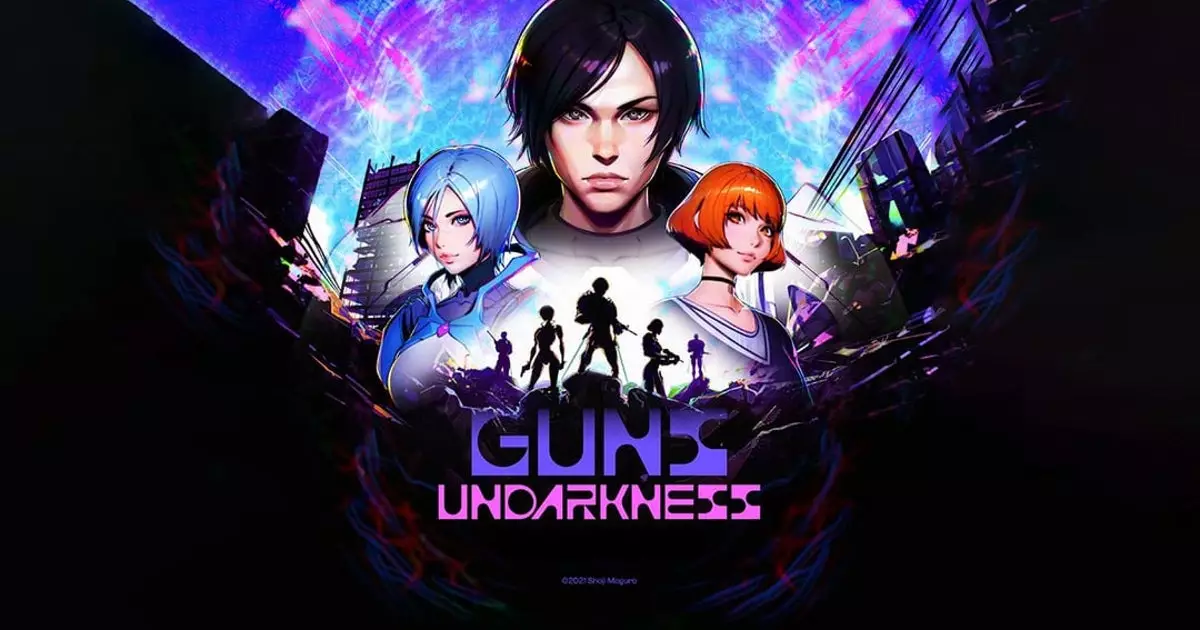The gaming universe is no stranger to ambitious projects, but the upcoming turn-based RPG, Guns Undarkness, is raising eyebrows for both its gameplay and thematic depth. Developed by renowned Shin Megami Tensei and Persona composer Shoji Meguro, the game is a collaboration with notable talent, including Ilya Kuvshinov, who is known for his work on Ghost in the Shell: SAC 2045, and Lotus Juice, a prominent figure in Japanese hip-hop. The synergy among these creators certainly leads to high expectations surrounding the game’s audio-visual experience. However, while visual aesthetics and audio compositions are crucial to a game’s identity, the real question looms: how does the game play?
Guns Undarkness is set in the year 2045, in a world that has been ravaged by a nuclear conflict. With narratives dealing with socio-economic disparities, the game presents a dark landscape where private military companies exploit the tensions between the rich and the poor. Described as a period of “abeyance,” where technology saw rapid growth but exacerbated social divides, the world of Guns Undarkness seems to mirror contemporary global issues, both socially and economically. The game explicitly draws from real-world themes, suggesting a narrative depth that could resonate well with players, albeit with the challenge of handling sensitive topics tactfully.
As the storyline unfolds, players assume the role of a rookie soldier tasked to navigate this devastated landscape, ultimately seeking answers about love and humanity’s potential for change. Echoing the concept of the “Great Reset,” which has sparked extensive debate and controversy in the real world, the game’s narrative risks becoming a focal point for intense political dialogue—a courageous move or a misstep?
In terms of mechanics, Guns Undarkness appears to embrace a tactical approach. Players lead a squad of four characters, initiating battles that alternate between strategic cover positioning and fast-paced turn-based combat. Influences from other tactical shooters can be observed, emphasizing stealth and environmental plays to gain an advantage. This method introduces a layer of strategy where the placement of characters becomes essential, setting the stage for dynamic interactions during encounters.
The two-fold combat system offers both regular attacks and skill-based actions, with the former providing flexibility and the latter being tied to resource management. Engaging in combat while utilizing cover could lead to nuanced tactical choices; players may fire off powerful skills while protected, promoting risk-reward scenarios that stimulate critical thinking. Furthermore, the presence of buffs and debuffs tied to weapon mechanics adds more complexity and depth, catering to fans of tactical RPGs who appreciate finer nuances in battle systems.
Despite its innovative aspects, the game’s heavy reliance on real-world themes could incur significant backlash if not executed thoughtfully. The sting of reflecting real-world issues—like class struggles and political agendas—into interactive gameplay could easily become polarizing. While it may be tempting to draw parallels with major series such as Metal Gear Solid, following in the footsteps of Hideo Kojima’s successful balancing of social commentary with engaging narratives is no easy feat. The potential for misinterpretation looms large, and this necessitates careful articulation in each story element within Guns Undarkness.
Moreover, the introduction of a reputation system similar to what fans recognize in the Persona franchise could lead to rewarding or restricting character progressions based on social interactions—an interesting mechanic that players are likely to embrace or critique intensely.
As Guns Undarkness approaches its release, set for sometime this year, the excitement remains palpable alongside a trepidation regarding the reception of its unique vision and intricate gameplay. While the involvement of familiar names offers faith in its potential, it’s ultimately the execution—how well it blends combat mechanics with a compelling, yet sensitive narrative—that will define its legacy. Should it successfully integrate its ambitious themes and engaging gameplay, Guns Undarkness could stand as a benchmark in the RPG genre, blending entertainment with meaningful discourse, thus solidifying its place among contemporary gaming staples. The gaming community waits eagerly, and perhaps apprehensively, for what this novel endeavor will unleash.

